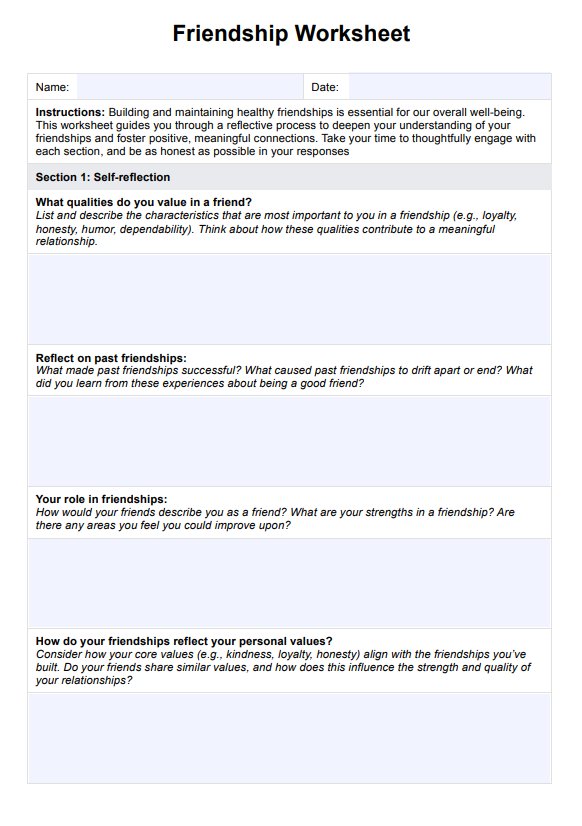Friendship Worksheets are designed to help clients of all ages, including children and middle school students, reflect on their social skills and develop healthier connections. They guide clients in identifying the qualities of a good friend, understanding true friendship, and resolving conflicts. Mental health professionals can use these worksheets to foster empathy, improve communication, and help clients navigate challenges like unhealthy friendships or feeling left out.

Friendship Worksheets
Explore our Friendship Worksheet for self-awareness, communication enhancement, and building stronger, more positive relationships. Download for free!
Friendship Worksheets Template
Commonly asked questions
Friendship Worksheets are valuable tools for teaching children and adolescents essential social skills, such as building empathy, being a good listener, and creating meaningful connections. Mental health professionals can use these worksheets during individual sessions, group therapy, or as homework to help clients understand the importance of friendships, identify the qualities of healthy relationships, and practice resolving conflicts.
Friendship Worksheets provide a structured approach for clients to explore their feelings, identify patterns in friendships, and develop strategies to create healthy, supportive relationships. Mental health professionals can use these worksheets to help clients understand the impact of these negative friendships on their lives, address feelings of exclusion, and build skills for managing conflict and maintaining positive relationships.
EHR and practice management software
Get started for free
*No credit card required
Free
$0/usd
Unlimited clients
Telehealth
1GB of storage
Client portal text
Automated billing and online payments











